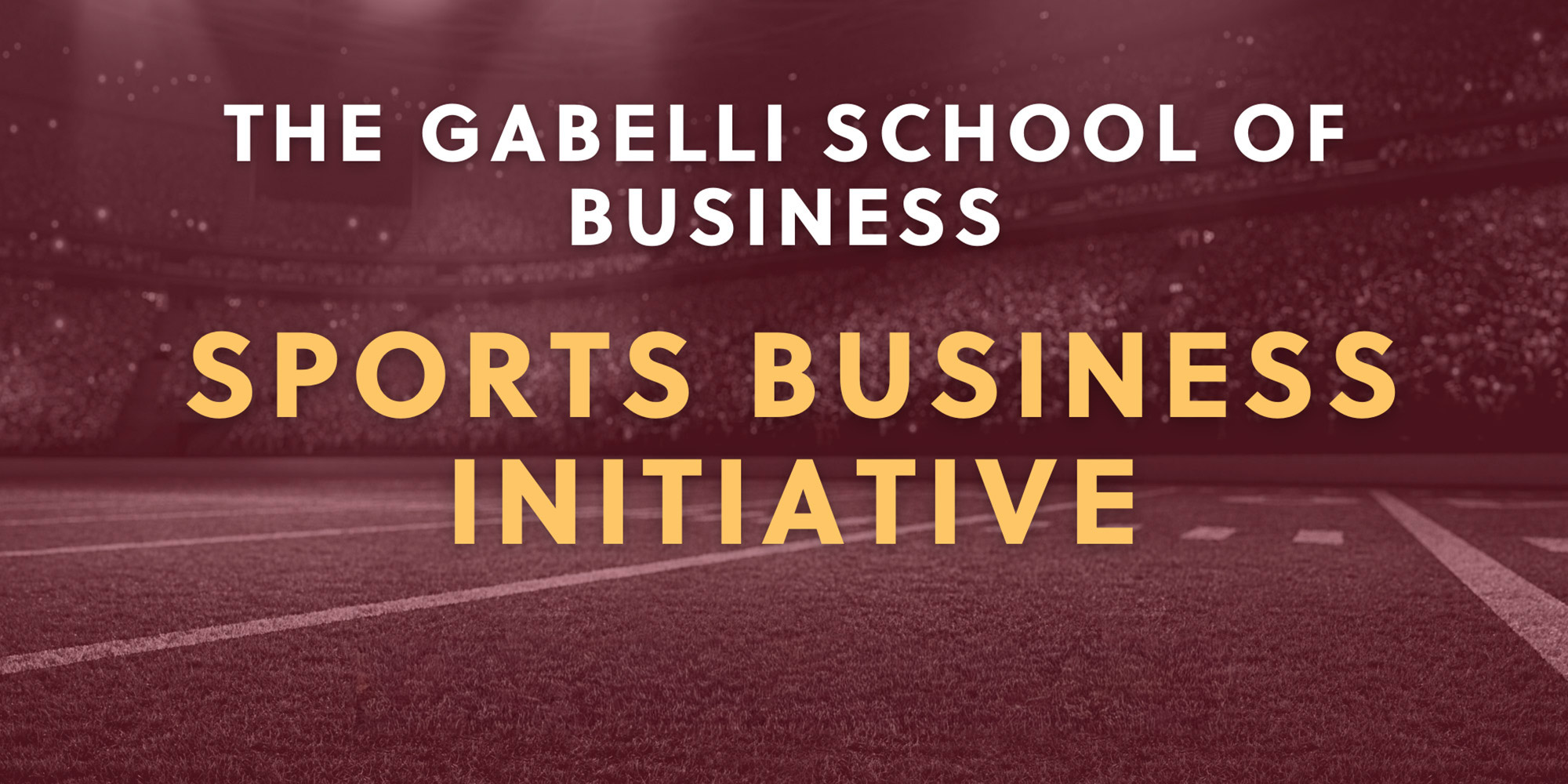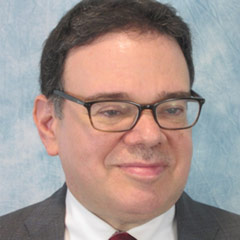Gabelli Sports Business Initiative

Focused on the Future of Sports
Sports business is evolving at an unprecedented pace. From the popularity of new recreational sports to advanced use of biometric data to aid in athletic success, the world of sports is becoming more complex and more controversial. As a result, sports business models, legal standards, and ethical questions are becoming more complex and fascinating. Players are asserting their rights, owners are profiting through new revenue streams such as gambling and streaming, and sports fans are coping with the intersection of sports and politics. Additionally, mental health concerns, sexual abuse, and gender identity of athletes have produced debate on all levels of the sports hierarchy.
The Gabelli School Sports Business Initiative is at the cutting edge of everything that is happening in sports business. It examines and analyzes current issues involving sports and provides a forum that brings together stakeholders across professional sports, amateur sports, collegiate sports and Olympic sports, for critical discussions on what matters most.
From sports podcasts to symposia to lectures, the content we produce and deliver provides the insights and thought leadership that will drive the future of sports.
Professor Mark Conrad

The Gabelli School Sports Initiative was founded and is directed by Professor Mark Conrad, JD, who teaches in the Gabelli School’s Law and Ethics Area, and who also directs the Sports Business concentration for Gabelli School undergraduates. He has taught sports law and business classes at Fordham University for over 25 years. Professor Conrad has served as a panelist discussing sports law and business topics at other institutions, including Harvard University, Duke University, The University of Pennsylvania, and Fordham Law School, and is frequently quoted in major media outlets. He has lectured at Columbia University and Northwestern University in Doha, Qatar.

NEW – Sports Business Podcast with Prof. C
Professor Mark Conrad interviews sports experts, authors, and athletes on the topics that are changing the industry. He also comments on the key issues of the day. His law background provides a ground-breaking approach to enlightened exchanges with guests who join him in tackling tough topics. Tune in to these stimulating discussions to gain diverse perspectives, learn about interesting trends, and delve into the depths of the controversies that often make headlines.
-
- Sports Betting's Unintended Consequences
- The Author Series: How the NFL Became a Juggernaut with Ken Belson
- Protecting Athletes and Driving Change: The Army of Survivors with Julie Ann Rivers-Cochran and Grace French
- Accountability and Reform: The Future of the NFL Players’ Association
- The Authors Series: “More Than Play” with Dionne Koller
-
- The Copa America Mess in Miami
- Did Chinese Swimmers Get a Break from Doping Enforcement?
- Music Gets Waterlogged at the Olympic Opening Ceremony
- American Olympic Success Fueled by the NCAA: Will the Athlete Pipeline between College and the Olympics End with the Major Changes in the NCAA System?
- The Pop-A-Shot National Championship: A Marketing Professor's Journey with Prof. Luke Kachersky and Pop-A-Shot VP Nick Gonzalez
- Time for the Sports Industry to Fight Antisemitism
- The Trump Effect: Are Major Shifts in Sports Law Coming?
- How Juan Soto Avoids New York’s Taxman: A Deep Dive with Tax Expert Robert Raiola
- A Conversation with Supervisory Attorney Adviser Malinda Pileggi on the SEC's Efforts to Protect these Athletes
- The MLB-ESPN Split: What It Means for Baseball's Broadcast Future
- Jackie Robinson's Enduring Legacy: Civil Rights, Baseball, and the Future of DEI
- High Stakes: The Gamble Behind Legal Betting
-
- Welcome to the Sports Business Podcast
- Should USA Gymnastics Have Signed with Nike?
- Where is College Sports Headed? The Evolution of NCAA Amateurism to NIL Rights
- The Future of the Olympics: A Conversation with Olympics Expert Richard Perelman
- Do Transgender Women Have a Competitive Edge? A Study by the American Academy of Sports Medicine
- Athletes and Taxes, Part I: A Discussion with Tax Expert Robert Raiola
- Athletes and Taxes, Part II: The Ohtani Case with Tax Expert Robert Raiola
- Content Streaming and Social Engagement: A Conversation with Greg Butler, CEO of ZuCasa
- The Valieva Case is Finally Put to Rest (Well, Not Exactly)
- The NCAA at a Crossroads: A Death Knell or a New Beginning?
- Immersive Technology and Sports: A Conversation with James Giglio, Founder of MVP Interactive
- The NCAA Settlement is Not the End of the Fight for College Sports
- Doping in Sports - A Different Perspective: A Conversation with Alexander Hutchison, Ph.D.
- Contracting with FIFA: We Know Who Has the Leverage
For More Information
Please contact Professor Mark Conrad, Director, Sports Business Initiative: [email protected] or [email protected]